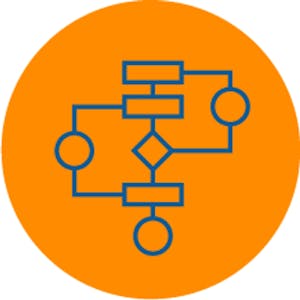How to Get Into AI
About this Course
AI forms the basis for all computer learning and is the future of all complex decision-making. As such it is becoming increasingly prevalent in daily life. As a result, the outlook is bright for artificial intelligence jobs. In this course, you will learn how to navigate the dynamic field of artificial intelligence (AI), exploring its applications and the evolving landscape of AI-related careers. You\'ll learn to understand various AI techniques, from artificial intelligence engineering to data science, gaining insights into their applications and ethical considerations. Get ready to acquire the skills that will propel your career in this rapidly evolving field! Click Start, a nationwide training programme designed to help young people develop digital skills, offers this course. Click Start offers scholarships giving free access to young people in the UK. Follow the link in the Click Start icon on the top, to check if you are eligible for free access!Created by: University of Leeds

Related Online Courses
This is a self-paced lab that takes place in the Google Cloud console. In this lab, you learn to use BigQuery to find data, query the data-to-insights public dataset, and write and execute... more
The specialization \"Neuromarketing\" is intended for post-graduate students seeking to develop expertise in neuromarketing and neuroscience methods. Through three courses, you will cover topics... more
Wharton\'s Business and Financial Modeling Specialization is designed to help you make informed business and financial decisions. These foundational courses will introduce you to spreadsheet... more
This Specialization is designed for people who are new to software engineering. It\'s also for those who have already developed software, but wish to gain a deeper understanding of the underlying... more
This specialization is intended for people with an intermediate understanding of Java. These topics include basic syntax, control structures, loops, methods, and object-oriented programming. The... more








